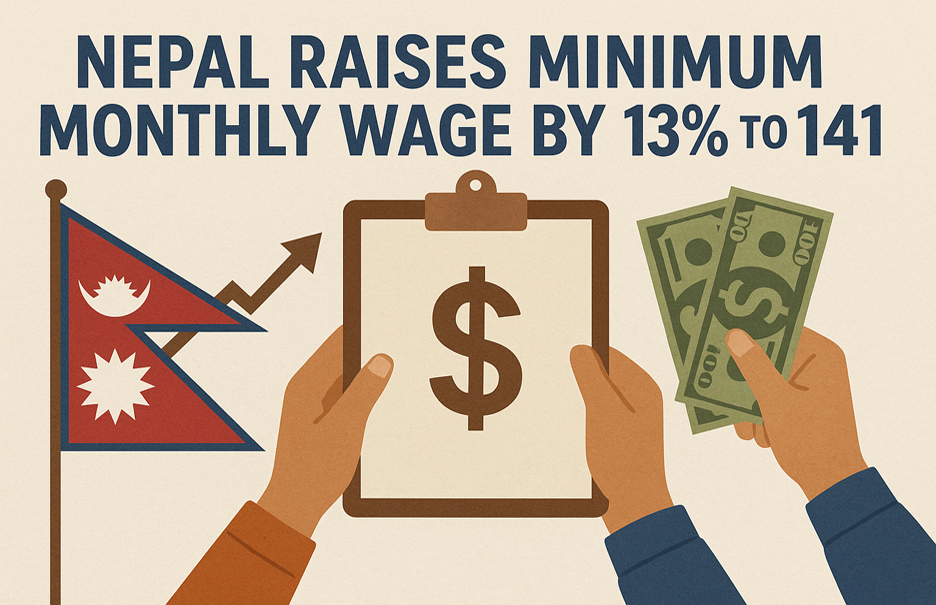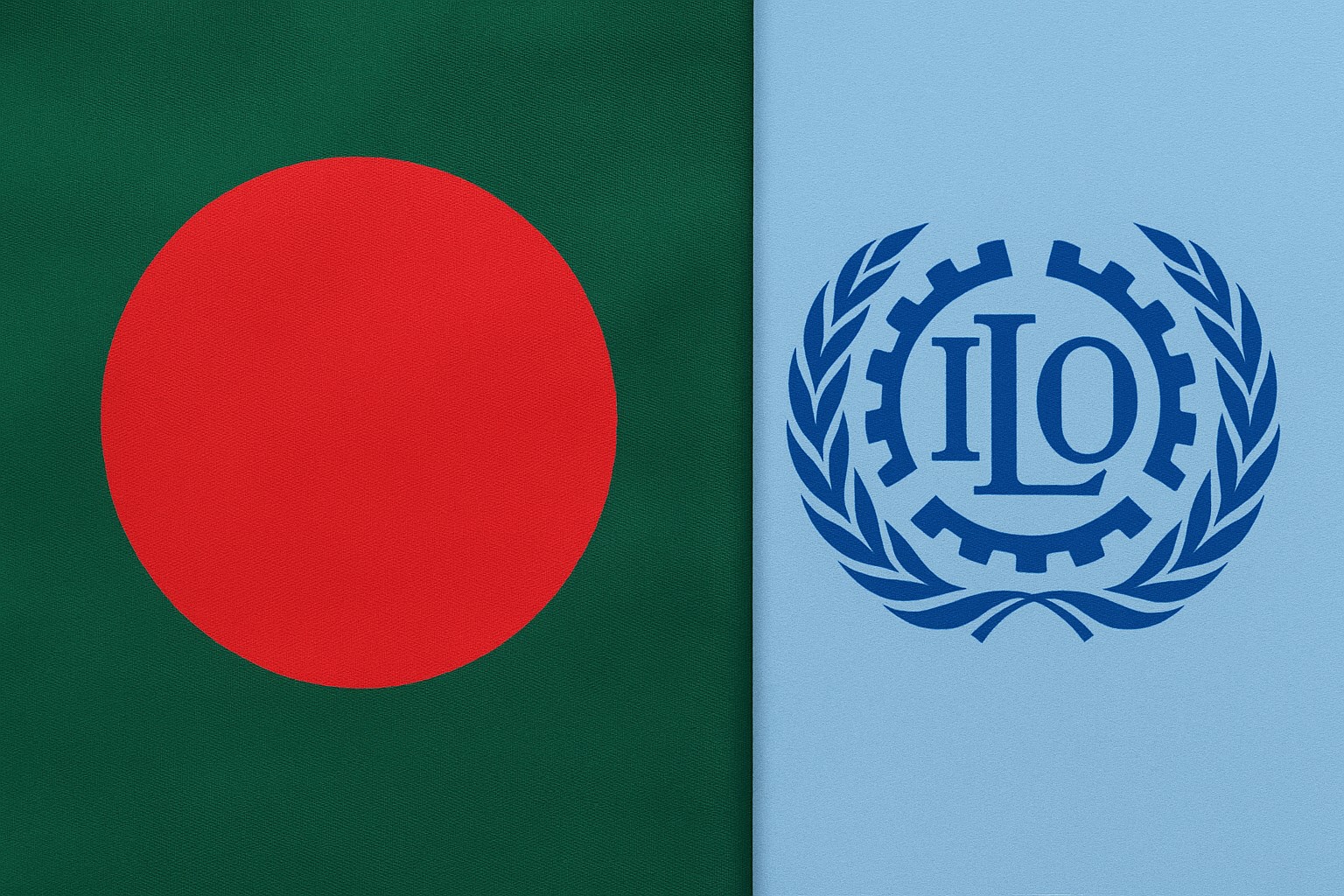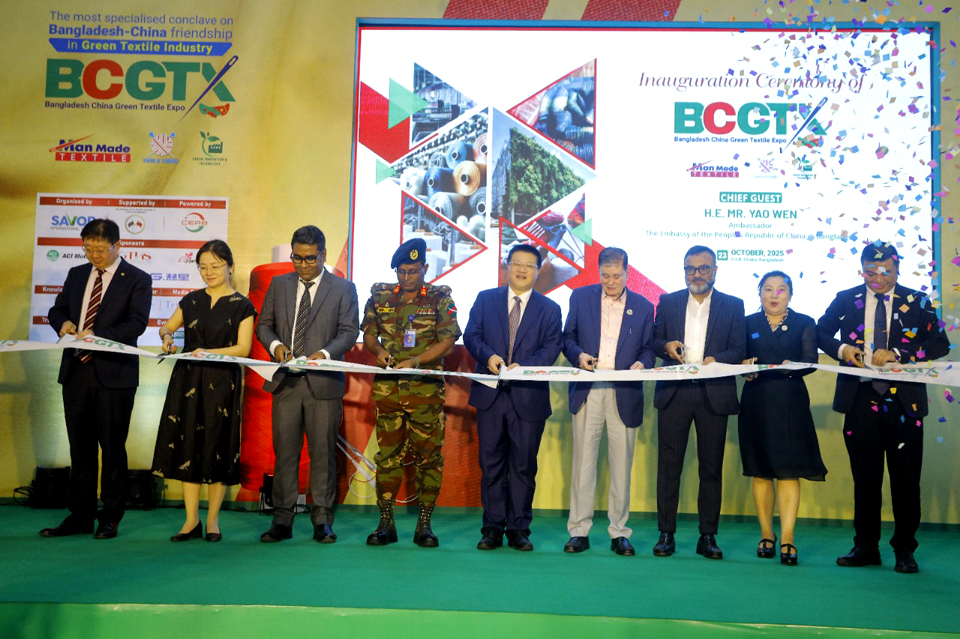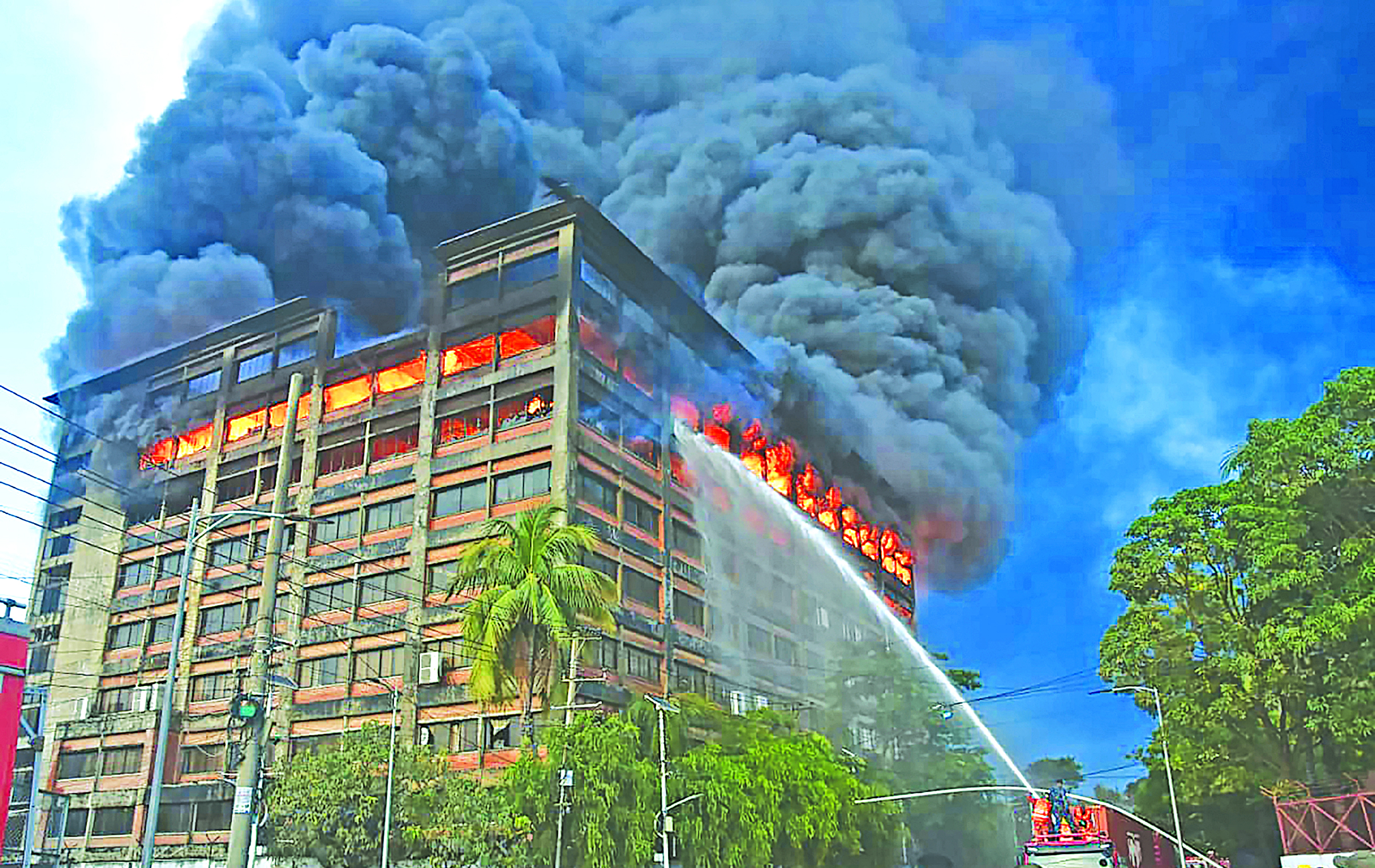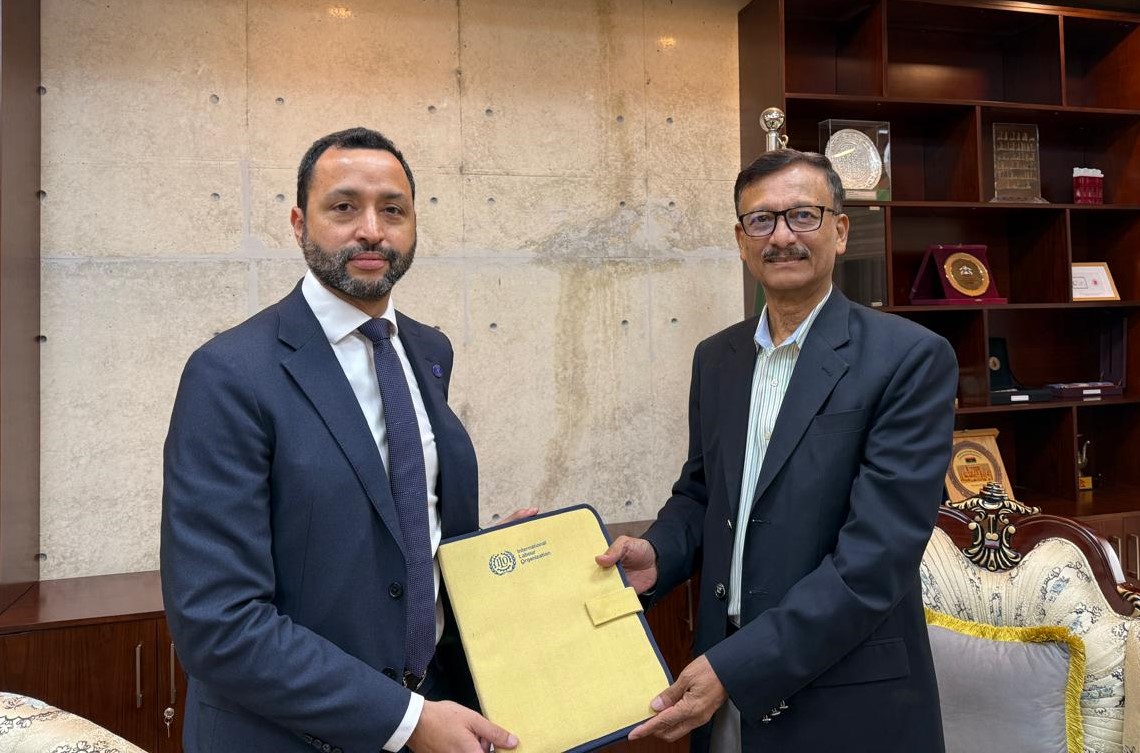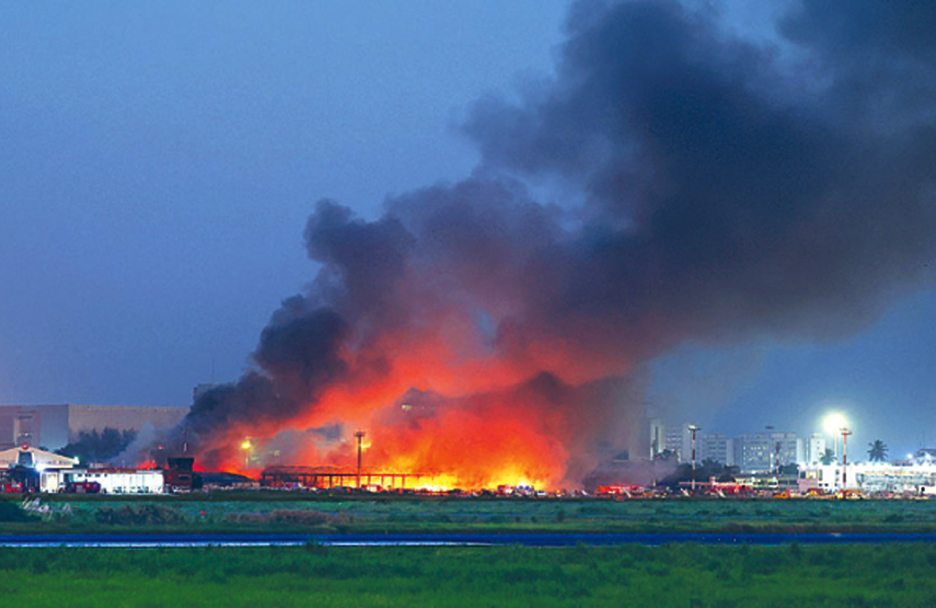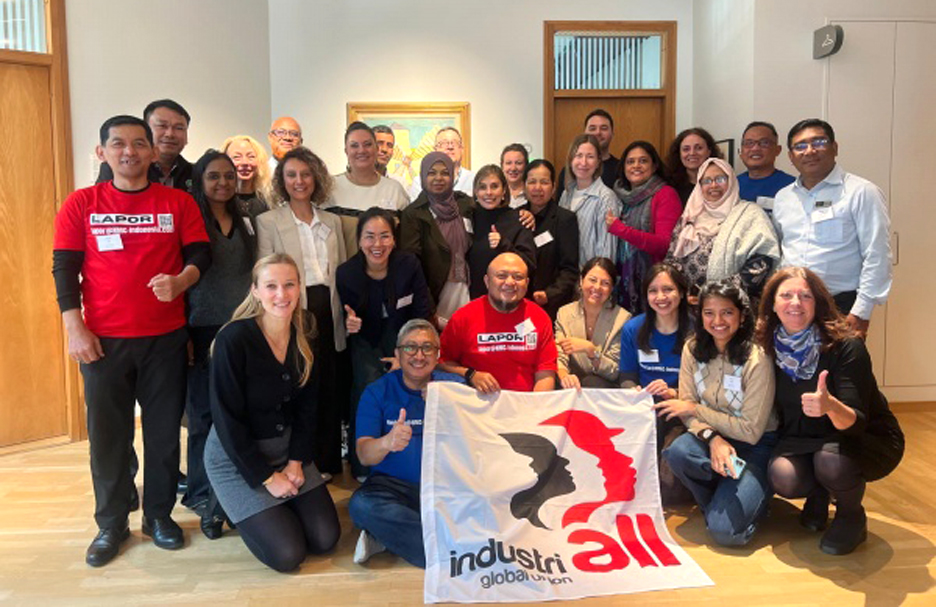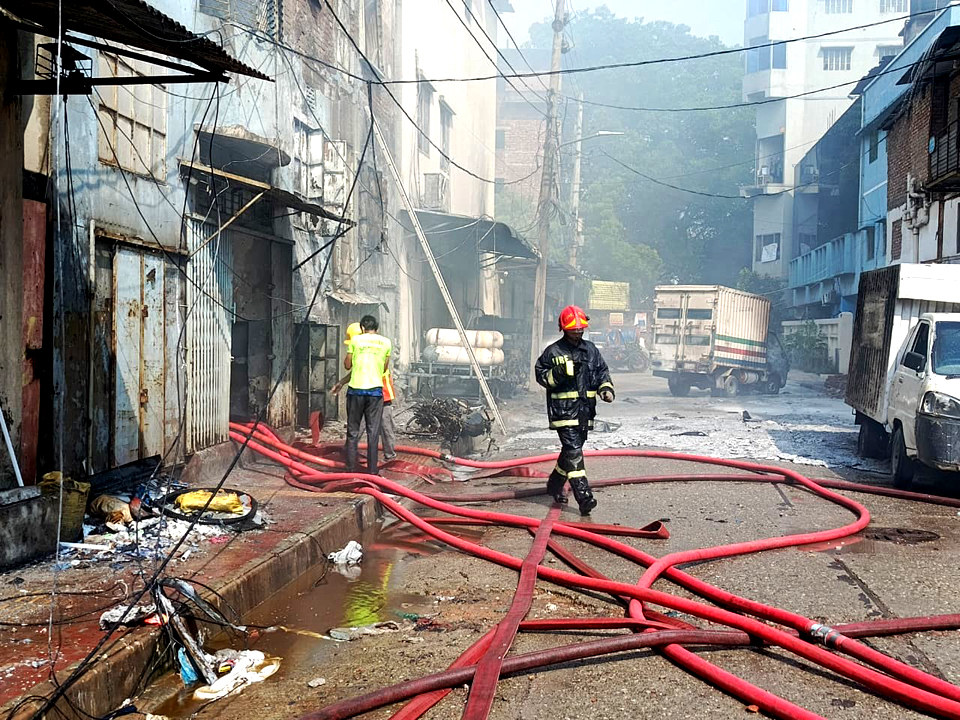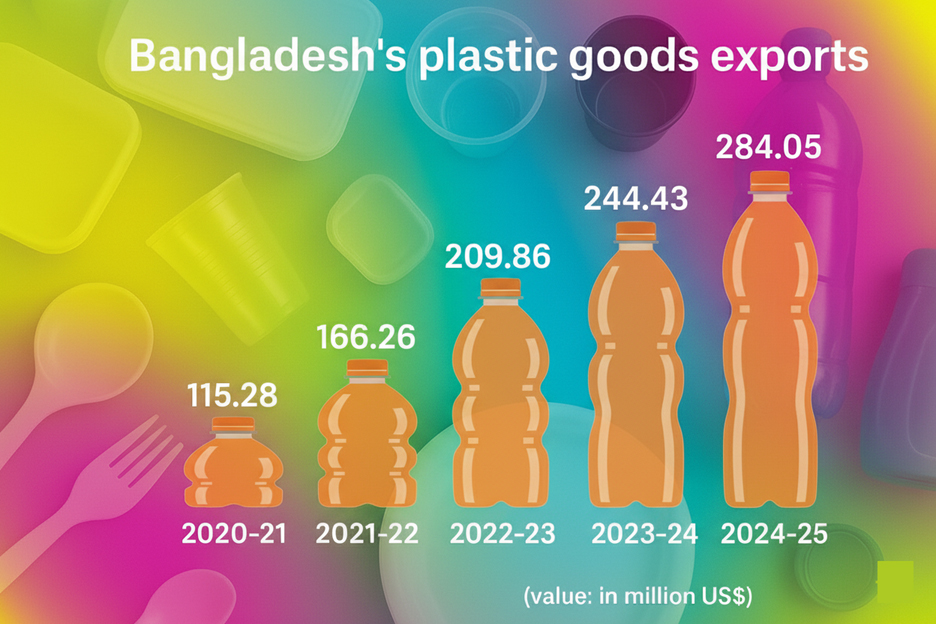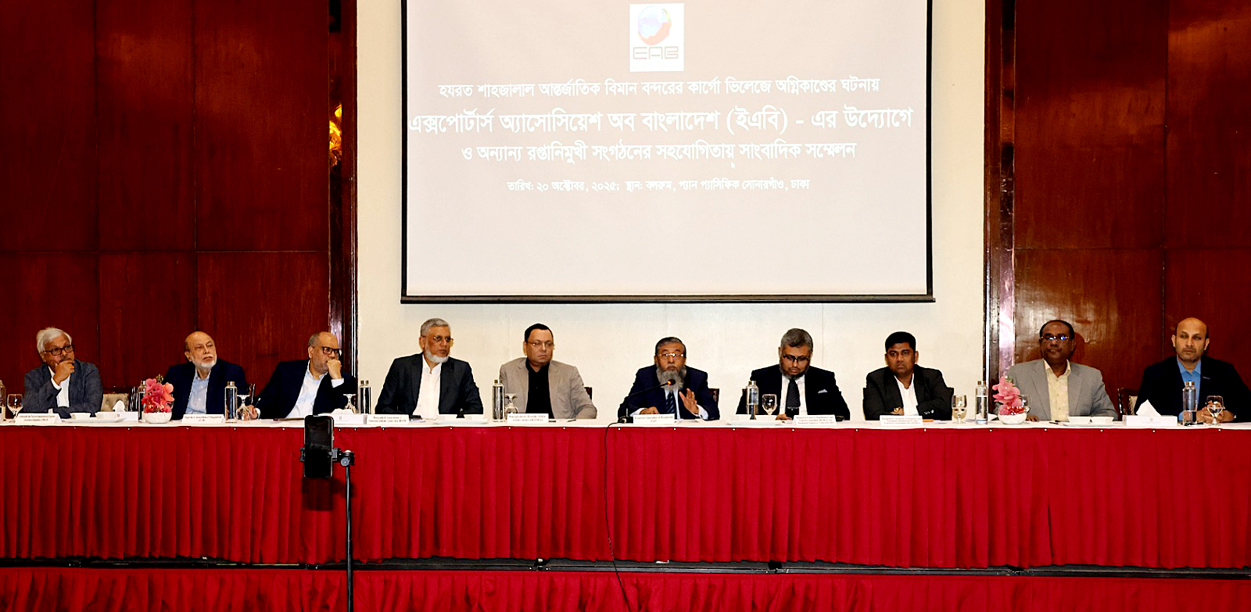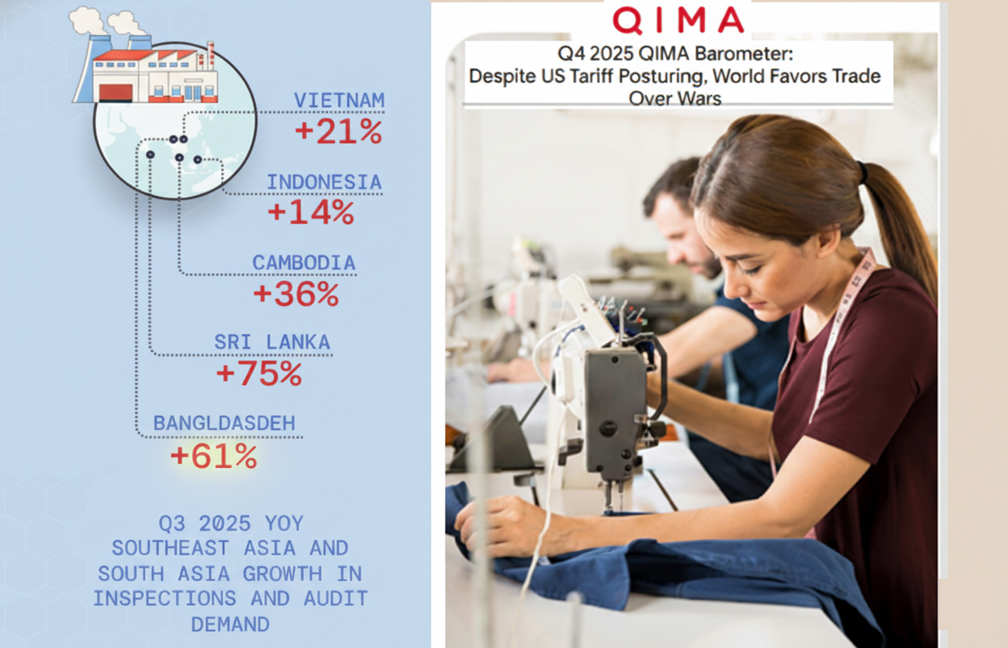Nepal has raised its workers’ minimum monthly wage by 13 per cent, setting it at NPR 19,550 ($141), following a tripartite agreement reached last week among the government, employers, and trade unions.
The new wage, which came into effect on 15 July, marks the start of the new financial year and replaces the previous rate of NPR 17,300 ($125) set in 2023.
Under Nepal’s labour law, the minimum wage is revised every two years. Unlike the last revision, this year’s wage-setting process actively included trade unions from the beginning.
Although unions had jointly demanded a minimum wage of NPR 30,443 ($220), all parties agreed to the revised figure during the negotiations.
The new minimum wage applies to all workers except those employed in estates and tea gardens.
Under the agreement, the minimum daily wage is now NPR 754 ($5), the minimum hourly wage is NPR 101 ($0.7), and part-time workers must receive at least NPR 107 ($0.8) per hour.
Anand Thami, secretary of the IndustriALL Nepal Council, welcomed the process.
‘We are very pleased that this time the government upheld tripartism in fixing the minimum wages and that voices from trade unions were included. Trade unions must brace themselves now to see that the revised minimum wage is strictly implemented,’ Thami said.
Last month, IndustriALL held a meeting with its affiliates in Nepal to discuss the concept of a living wage and share findings from union-led research on appropriate wage levels in the country.
Ashutosh Bhattacharya, South Asia regional secretary of IndustriALL, expressed support for Nepali unions.
‘We congratulate our affiliates in Nepal for pushing for workers’ rights during the minimum wage negotiation process. IndustriALL stands with you in the struggle and our fight for living wage will continue,’ he said.
The wage increase, while welcomed as a step forward, falls short of union expectations, keeping the broader conversation on living wages and cost-of-living challenges very much alive in Nepal’s labour movement.


